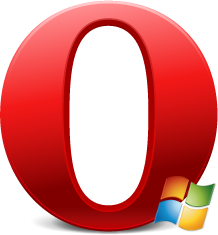Web Browser Grand Prix 2: Running The Linux Circuit
Last week we showed Opera 10.60 to be the world's fastest Web browser. That was in the Windows world. But where do Chrome, Firefox, and Opera stand in Linux? Today we find out. Adding the Win 7 results, we'll also learn which OS has the speediest browser.
Conclusion
Now, let's break down the wins by category to get a sense of which browser excels in different areas. We'll also list browsers that are strong, though not the winner, in each category. Along with noticeable strengths, we also list browsers that are clearly weak in certain categories.
| Category/Test | Winner | Also Strong | Weak |
|---|---|---|---|
| Speed-Only Tests | |||
| Startup Time | Firefox | Chrome | None |
| Page Load Time | Chrome | None | None |
| JavaScript | Opera | Chrome | Firefox |
| DOM | Opera | None | None |
| Peacekeeper | Opera | Chrome | Firefox |
| HTML5 | Opera | None | Chrome |
| Acid 3 | Chrome | Opera | None |
| Flash | Firefox | None | Opera |
| Java | Opera | Chrome | None |
| Silverlight | Firefox | None | None |
| Other Tests | |||
| HTML5 | Chrome | None | Firefox |
| CSS3 | Firefox | All | None |
| Memory Usage | Firefox | None | Chrome |
| Memory Management | Chrome | Firefox | Opera |
As you can see, the per-category outcomes are a mixed bag, unlike our Windows 7 results. Both Opera and Firefox win in five categories. Chrome takes four.
Google Chrome is strong, though not the winner, in five categories. Both Opera and Mozilla Firefox are only in this strong position in two categories. As weaknesses go, Mozilla has the most with three, while Chrome and Opera only have two weak points each. Judging by category nearly results in a tie. You really must defer to the overall placing and individual scoring to see how Chrome pushes ahead of the other two.
Lin Versus Win
So how do the scores in Linux compare, overall, to the scores achieved by these three browsers in Windows? As you have probably noticed while looking through the charts, with the notable exception of Startup Times, HTML5 performance, and a few other instances here and there, the Windows 7 scores are fractionally higher than those of Ubuntu 10.04 across the board. This is not necessarily a reflection on the potential Web performance of the Linux OS, but more likely a reflection on how much time developers spend on Linux ports.
So how does the overall winner in Windows, Opera 10.60, compare to the overall winner in Linux, Chrome 5?
In the 28 tests we ran, Opera 10.60 for Windows beats Chrome 5 for Linux in 14. The CSS3 Selector Test is a tie, and Google wins the remaining 13 benchmarks. When only taking speed tests into account, the ties are less prevalent, and Opera only suffers a single loss, bringing its total down to 13.
Get Tom's Hardware's best news and in-depth reviews, straight to your inbox.
Unfortunately, when you remove memory and standards testing, Chrome loses four of its victories. This makes Opera 10.60 for Windows the overall and speed-only winner when matched against the top five Web browsers for Windows and the top three in Linux. Before the flame wars erupt like Mount St. Helens, let's get one thing clear: this does not mean Windows is better or faster than Linux. Rather, Windows has the fastest Web browser available today, regardless of OS. And that browser is Opera 10.60 for Windows. Gratulerer!
-
Tamz_msc The article that I was waiting for.How the tables have turned!Reply
Conclusion:Firefox is quite capable in both Linux and Windows.
I'm using Firefox 4 beta and I find it pretty quick. -
micr0be yes i would have loved to have seen the firefox 4 beta with the results. although great article.Reply -
adamovera weirdguy99Why not put firefox 4 into the equation?micr0beyes i would have loved to have seen the firefox 4 beta with the results. although great article.When it's final, I'll test it.Reply -
Tamz_msc DamdamanI'll get berated for this I'm sure but will we see an OSX article on browsers as well?You are kidding,right?Reply -
arnweb Opera Turbo feature, is not mentioned here, it can boost speed in real surf. And also when we open a closed tab in Opera it opens them instantly, that's why Opera holds memory for closed, tab.Reply -
Sihastru Opera still can't render pages properly, still can't print content properly, and we waste our time with senseless tests of imperceptible speed.Reply -
The_King I dont think anyone using firefox will change to another browser even if it is Faster. I love my firefox :)Reply -
Tamz_msc arnwebOpera Turbo feature, is not mentioned here, it can boost speed in real surf. And also when we open a closed tab in Opera it opens them instantly, that's why Opera holds memory for closed, tab.Opera Turbo increases page load times on slow connections.On my 2Mbps connection the time in which Opera Turbo connects to its servers is the time in which Google loads in Firefox.Reply

